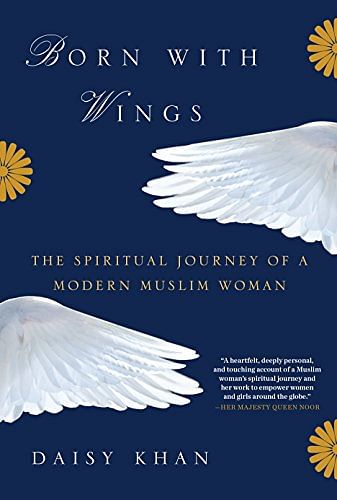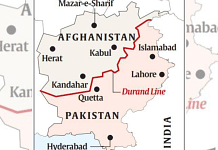
Muslim and feminist, Daisy Khan’s memoir is a powerful account of a woman dealing with religion and women’s rights, faith and FGM, self-actualisation and marriage.
“I planned a singles event on Valentine’s Day and positioned it as a social networking opportunity for Muslim men and women to meet in a religiously appropriate context,” writes Dasiy Khan in her book Born with wings: The spiritual journey of a modern Muslim woman.
Much of what Khan writes is about making Islam approachable, contextual, and modern in an increasingly Islamophobic world. For many readers, her memoir could be a guide to asserting rights and adhering to faith.
Daisy Khan is one of the most prominent voices of Muslim America, and the founder of WISE- Women’s Islamic Initiative in Spirituality and Equality, a global organisation.
Currently living in New York, Khan recalls her childhood in a progressive family in Kashmir– readings books, wearing bell-bottom jeans, and praying with her grandmother ‘Moji’ who had a premonition about Khan’s spirituality.
Khan’s depiction of Kashmir, however, seems sanitised, given the current political climate. The violence, if at all, is a faded note in the background. This becomes a larger absence in the book, one that Khan does not address in its totality. For her, Kashmir remains nestled in a nostalgic pastoral idyllic.
The memoir traces the author’s journey from childhood, to disbelief in religion, to marrying an imam and finding her purpose. Khan was thrown into the public eye following the 9/11 tragedy, when her husband and she were blamed and entangled in controversy.
For Muslims, America changed following 9/11, never to be same again. Muslim people were not seen as persons, but as responsible for Islamic extremism around the world. Khan and her group, in response, launched the ‘Jihad against violence’. The Muslim women had to answer crucial questions: What do we do about terrorism, female genital mutilation, about ISIS?
Dasiy Khan knew she could not hide, she had to answer people, resolve doubts, show them the tolerant Islam. She even tells Gloria Steinem that the Prophet was a feminist of his time.
With her team, she helps barbers in Egypt give up FGM, prevent women from being lured by the seductive advertising of ISIS, and provides counselling to LGBTQA Muslims.
Away from all the world-saving, Daisy Khan, in her book, is also vulnerable and just like anyone struggling with herself– struggling to break out of the shadow of the men in her life, miscarriages and relationship strains.
The memoir is a strong one, written with conviction and does not mince words. To many, the spirituality of the book may be too far-fetched and dramatic, but Khan also keeps the book grounded and deeply personal. Even, agnostics and atheists will relate to her struggles.






COMMENTS